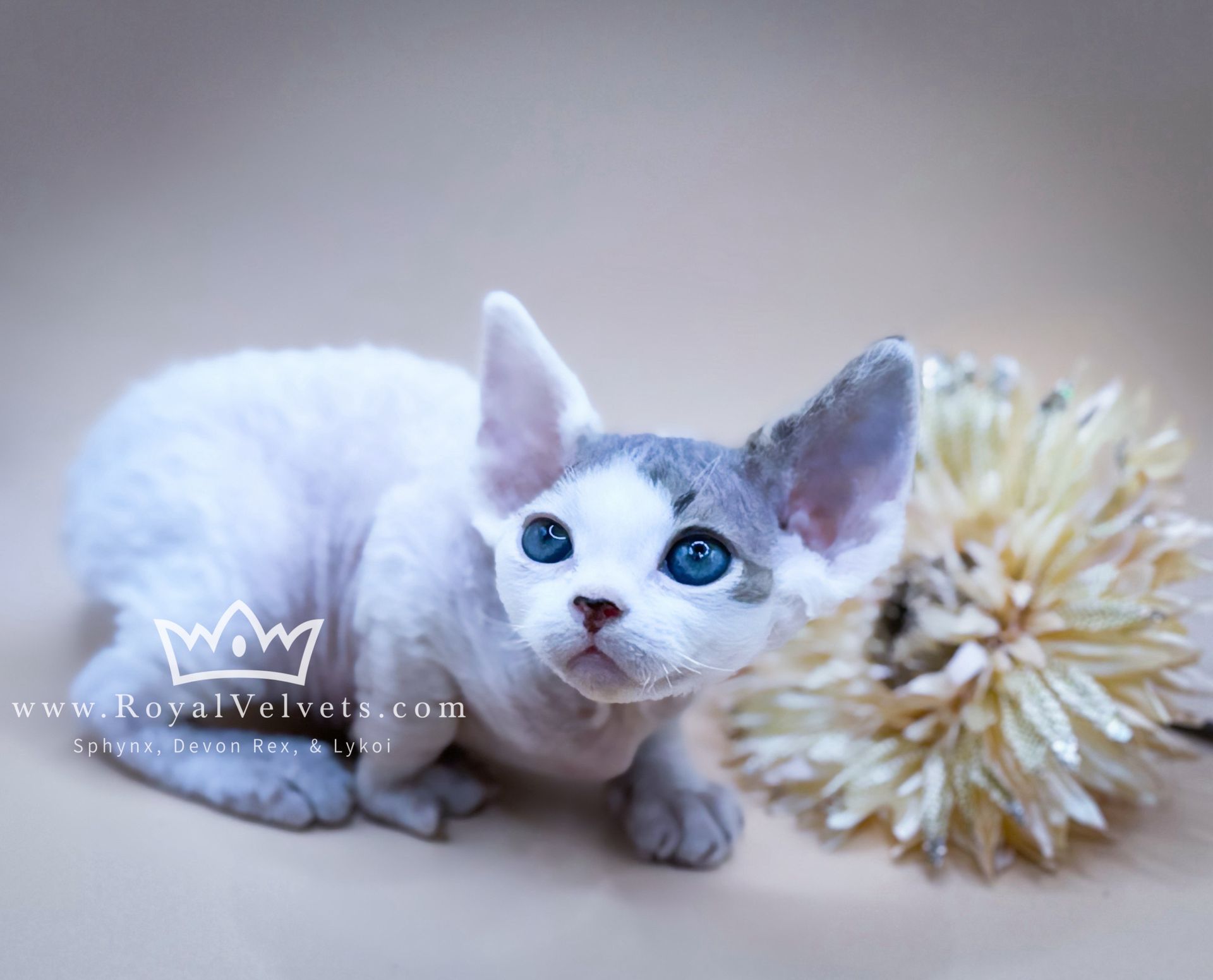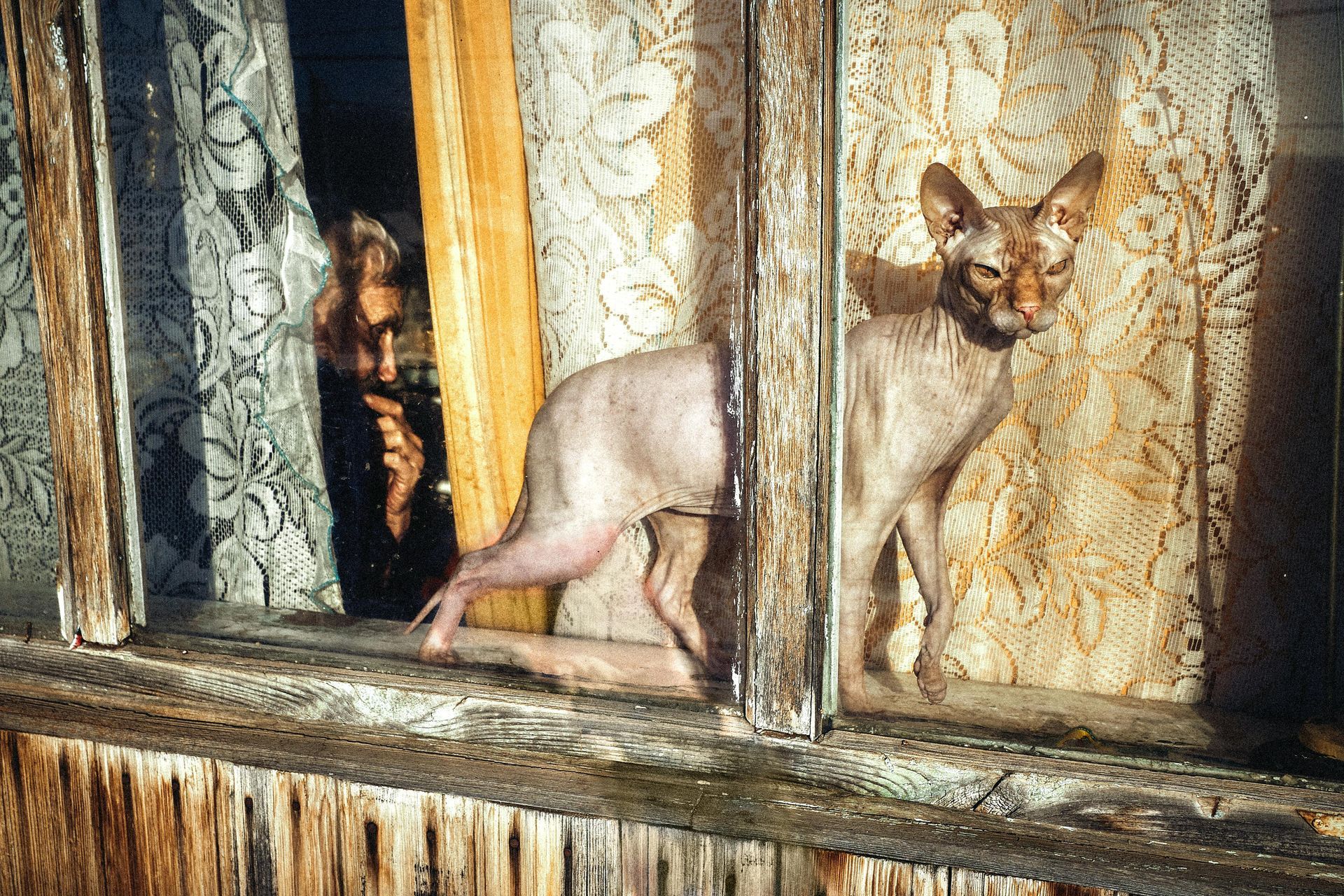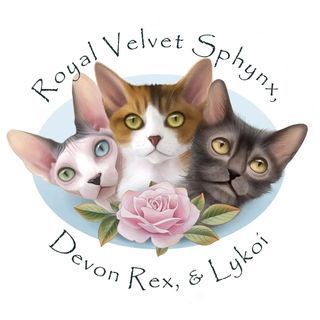Sphynx kittens, known for their distinctive lack of fur, along with Lykoi and Devon Rex breeds, have intrigued and captivated cat lovers around the world. Originating in the 1960s in Canada from a natural genetic mutation, these unique felines challenge traditional perceptions of pet aesthetics and care. Embracing the sphynx means understanding their need for warmth, regular bathing, and human companionship. This breed's playful and affectionate nature makes them more than just pets; they're family members who demand attention and love. If you're considering bringing a sphynx kitten into your home, prepare to be charmed by their endearing personalities and unforgettable appearance.
Key Takeaways
- Sphynx kittens require a diet that caters to their unique nutritional needs, emphasizing the importance of understanding these requirements to ensure their health and vitality.
- Incorporating a raw diet can offer significant advantages for Sphynx kittens by providing them with essential nutrients in a form closely resembling their natural dietary intake.
- It's crucial to customize diets not just based on the breed but also considering the individual health conditions and preferences of each Sphynx kitten, underlining the need for personalized nutrition plans.
- Adopting a balanced diet approach is key, combining both raw and processed foods to create a comprehensive feeding plan that covers all nutritional bases for a growing Sphynx kitten.
- For owners with different lifestyles, exploring alternative feeding options that still meet the nutritional demands of Sphynx kittens can ensure their well-being without compromising convenience.
- Transitioning Sphynx kittens to new diets or supplementing their meals should be done gradually and with careful monitoring to avoid digestive issues and ensure they receive all necessary nutrients.
Understanding Unique Dietary Needs
High-Protein Diet
Sphynx kittens have a high metabolism. This trait demands a diet rich in proteins. Such a diet supports their energy levels and growth needs.
Owners should choose foods specifically formulated for high-energy breeds. These foods ensure the kittens' muscle development and overall health are well-supported.
Frequent Feeding
Their rapid metabolism also means Sphynx kittens need to eat more often. Unlike other breeds, they benefit from smaller, more frequent meals throughout the day.
This feeding schedule helps maintain their energy levels consistently. It prevents them from feeling overly hungry or experiencing dips in energy.
Hydration Importance
Staying hydrated is crucial for Sphynx kittens. Their unique physiology makes proper hydration even more essential than for other cats.
Owners can encourage water intake by providing fresh water at all times. Incorporating wet food into their diet can help increase their water consumption.
Exploring the Raw Diet Advantage
Healthy Skin
Raw diets play a pivotal role in promoting healthy skin and coat, especially vital for Sphynx kittens. These hairless wonders, specifically Sphynx cats, require extra care to keep their skin supple and free from issues. A diet rich in raw meats provides essential fatty acids, contributing to a smooth and hydrated skin surface.
Owners notice a remarkable difference in their kitten's skin texture within weeks of switching to raw foods. This change not only enhances the Sphynx Cattery kitten's appearance but also its overall well-being.
Digestive Health
Mimicking a natural feeding environment, raw diets support optimal digestive health. Sphynx cats, with their sensitive stomachs, benefit greatly from the easily digestible nature of raw food.
This diet reduces the risk of gastrointestinal problems common among domestic cats. It ensures that your Sphynx kitten absorbs all the necessary nutrients efficiently, promoting robust health.
Safety Measures
Despite its benefits, transitioning to a raw diet comes with its concerns. Proper handling and preparation are crucial to avoid bacterial contamination. Owners should follow strict hygiene practices when preparing meals.
Consulting with a veterinarian before making dietary changes is advisable. They can provide tailored advice ensuring the diet meets all nutritional needs while addressing any potential risks.
Customizing Diets for Each Breed
Nutritional Needs
Sphynx kittens require more calories than their furry counterparts. Their lack of coat means they lose more body heat. To compensate, their diet must be rich in calories.
They thrive on high-protein and moderate-fat diets. These nutrients support their energetic nature and help maintain body temperature.
Breed Comparison
Unlike the common domestic cat, Sphynx kittens have unique dietary needs. For instance, a typical kitten might do well on a standard kitten formula. However, a Sphynx's diet should lean towards higher calorie content.
This breed's metabolism runs faster. It processes food at an accelerated rate to sustain body warmth and vitality.
Portion Control
Adjusting portion sizes is crucial for Sphynx kittens. Overfeeding can lead to obesity, while underfeeding may not meet their energy demands.
Veterinarians recommend frequent, measured meals rather than free-feeding. This approach ensures they get enough nutrients without excessive weight gain.
Nutrient ratios should also be tailored to individual health needs. A balance of proteins, fats, and carbohydrates is key to supporting their active lifestyle and metabolic requirements.
Adopting a Balanced Diet Approach
Nutrient Essentials
A balanced diet is crucial for a Sphynx kitten's health. It must include proteins, fats, vitamins, and minerals. These nutrients support their energetic nature and help maintain healthy skin, which is vital for a hairless breed.
Proteins are the building blocks of muscle and essential for growth. Fats provide energy and keep the skin supple. Vitamins and minerals support overall health, ensuring that your Sphynx kitten thrives.
Specialized Foods
Commercial cat foods formulated for hairless breeds like the Sphynx are available. They contain higher levels of certain nutrients to support skin health.
Choosing these specialized foods can make a big difference in your pet's well-being. They are designed to meet the unique dietary needs of hairless cats, providing a tailored nutritional approach.
Label Literacy
Reading pet food labels is key to ensuring a balanced diet. Look for high-quality protein sources listed at the top of the ingredients list.
Avoid foods with excessive fillers or by-products. These can detract from the nutritional value of the food. Instead, opt for products with clear ingredient lists that specify meat types and nutritious additives.
Choosing Alternatives for Every Lifestyle
Busy Owners
For those with packed schedules, high-quality commercial diets offer a straightforward solution. These products are crafted to cater specifically to the Sphynx's nutritional needs. They balance convenience with the necessity for a diet that supports their high energy levels and unique metabolism.
Pet owners can find these diets in various forms, including dry kibble or wet food. Each provides a complete meal, ensuring your Sphynx kitten grows up healthy and strong without demanding much of your time.
Homemade Diets
Crafting homemade meals allows for customization to suit your Sphynx's preferences and health requirements. This approach demands more time and knowledge but pays off by giving you full control over the ingredients.
You can include lean meats, fish, and specific vegetables known to be beneficial for cats. However, it's crucial to consult with a veterinarian or a feline nutritionist to create a balanced meal plan. This ensures your kitten receives all necessary nutrients without any harmful extras.
Freeze-Dried Raw
Freeze-dried raw diets present a middle ground between traditional raw feeding and the convenience needed by modern pet owners. These diets maintain most of the nutritional benefits of raw food while eliminating pathogens through the freeze-drying process.
They're easy to store and prepare, making them an excellent option for those interested in raw feeding but wary of its usual drawbacks. Plus, many Sphynx kittens find the texture and taste appealing.
Transitioning and Supplementing Effectively
Gradual Introduction
Introducing new foods to a Sphynx kitten requires careful consideration. Start by mixing a small amount of the new food with their current diet. Increase the new food gradually over a week. This method helps prevent digestive issues, ensuring a smooth transition for your kitten.
Sudden changes can upset their stomachs. Monitor their reaction closely. If they show any signs of distress, slow down the process.
Essential Supplements
Omega fatty acids stand out for enhancing skin health in Sphynx kittens. Incorporate supplements rich in omega-3 and omega-6 into their diet. These nutrients support a healthy coat, reduce inflammation, and boost overall wellness.
Consult with a vet before adding any supplements. They can recommend the right type and dose for your kitten's needs.
Regular Check-ups
Veterinary visits are crucial for tailoring your kitten's diet as they grow. Regular check-ups help identify any nutritional gaps or health concerns early on.
During these visits, discuss your kitten's dietary needs based on their development stage and activity level. Your vet might suggest adjustments to ensure optimal growth and health.
Closing Thoughts
Navigating the dietary needs of your Sphynx kitten might seem daunting at first, but understanding their unique requirements and the benefits of a raw diet can make a world of difference. By customizing their meals to fit their specific breed needs and adopting a balanced diet approach, you'll ensure they grow up healthy and strong. Remember, choosing the right food alternatives and effectively transitioning and supplementing their diet are key steps towards a happy and nourished pet.
Your journey doesn't stop here. Dive deeper into learning about your feline’s nutritional needs and explore more ways to enhance their well-being. Your commitment to their health shows in every meal you prepare. Ready to take the next step? Start by reviewing your Sphynx kitten's current diet today and see where you can implement these insights for a thriving, joyful companion.
Frequently Asked Questions
What unique dietary needs do Sphynx kittens have?
Sphynx kittens require a diet high in protein and fat to support their metabolism and maintain their skin's health. Opt for high-quality, meat-based foods.
Is a raw diet good for Sphynx kittens?
Yes, a raw diet can be beneficial for Sphynx kittens as it closely mimics their natural dietary needs, providing them with necessary nutrients for growth and energy.
How should diets be customized for Sphynx cats compared to other breeds?
Diets for Sphynx cats should focus on higher calorie content due to their faster metabolism and need for more energy to regulate body temperature without fur.
Why is adopting a balanced diet important for a Sphynx kitten?
A balanced diet ensures that Sphynx kittens receive all essential nutrients needed for healthy development, including vitamins, minerals, proteins, and fats.
What are some lifestyle-friendly alternatives for feeding Sphynx kittens?
Consider high-quality commercial foods designed for high-energy breeds, freeze-dried raw options, or premium canned foods as convenient yet nutritious alternatives.
How can I transition my Sphynx kitten to a new diet effectively?
Gradually mix the new food with the old over several days, increasing the proportion of new food daily to avoid digestive upset.
What supplements should I consider for my Sphynx kitten?
Omega-3 fatty acids are great for skin health, while probiotics can support digestion. Always consult your vet before introducing any supplements.


